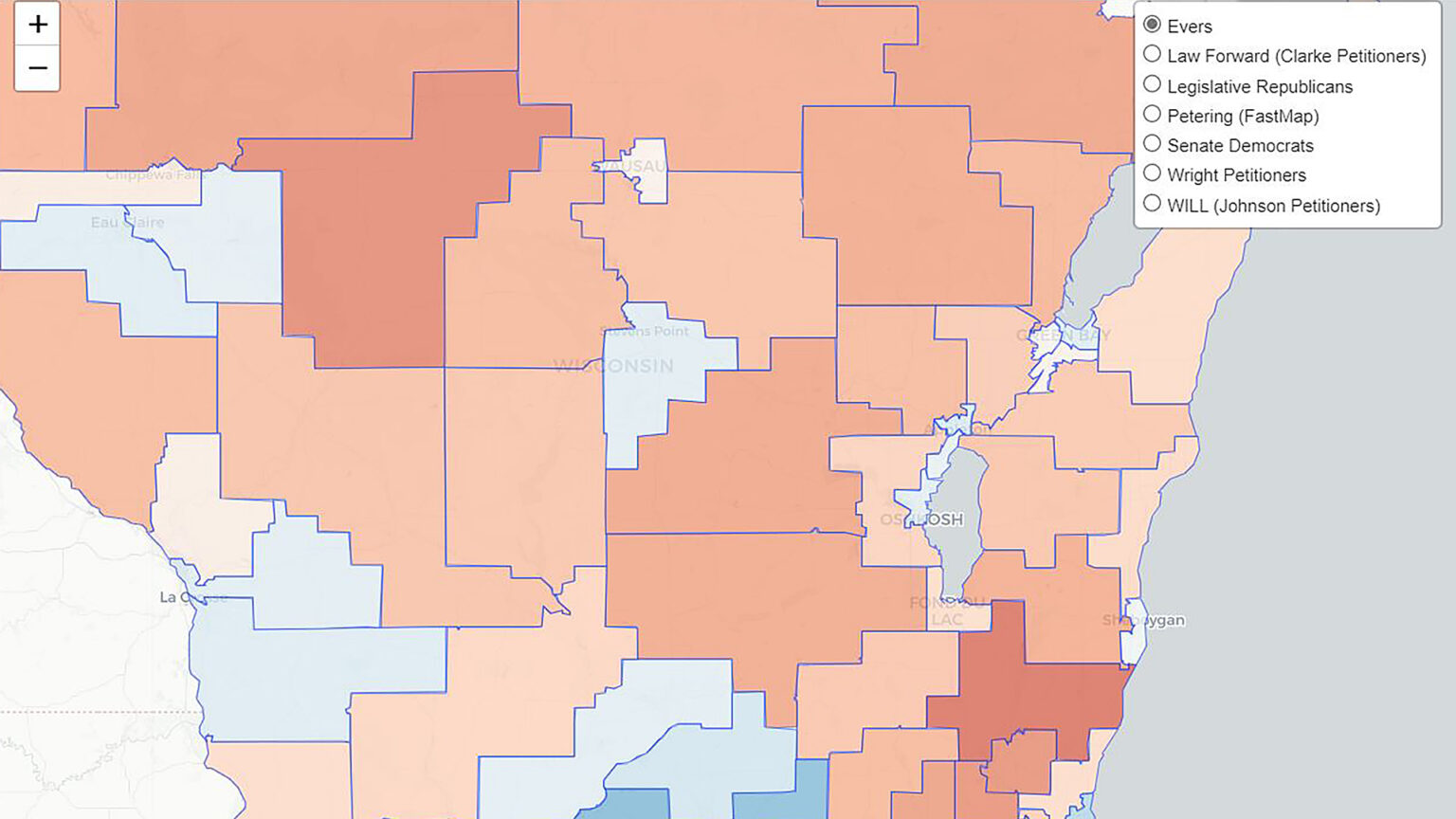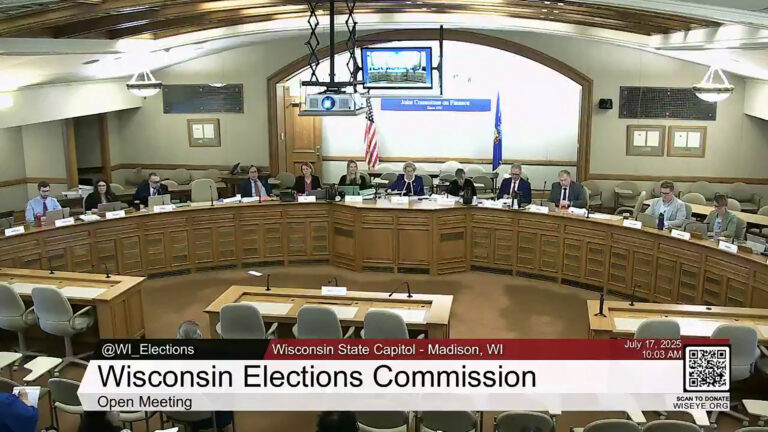What do Wisconsin's residency requirements mean for incumbents paired in redistricting?
Multiple members of the Wisconsin Legislature are likely to be in the same districts following the adoption of new maps in 2024, but state law and its enforcement have not been strictly followed.
By Zac Schultz
January 25, 2024

A portion of a map presented by Marquette University Law School research fellow John D. Johnson shows proposed Assembly districts submitted by Gov. Tony Evers to the Wisconsin Supreme Court in response to its order for redistricting in 2024. (Credit: Courtesy of John D. Johnson / Marquette University Law School Lubar Center for Public Policy Research and Civic Education)
Wisconsin is set to have new legislative district maps for the fall 2024 election, and that means some incumbent members of the Assembly and Senate will end up in the same district and potentially run against each other for reelection. In the last two rounds of redistricting, the maps were drawn by Republicans in the Legislature, who were aware of where incumbents lived and minimized the number of times changing district lines paired them.
The Wisconsin Supreme Court’s decision in December 2023 to require new maps set criteria for mapmakers to consider, but where incumbents live was not one of them.
On paper, that means those incumbents will have to decide if they want to run against a member of their own party in a primary, or in some cases against a sitting incumbent of the other party in the general election.
According to John Johnson, who has analyzed partisan patterns in the redistricting proposals submitted to the court, most of the maps would end up with between 17 and 19 districts with no incumbent living within its borders, which means a similar number of legislators are paired up in a different district.
In reality, Wisconsin voters may see a large number of incumbents avoid that decision and simply run in an open district. Wisconsin’s residency law requires legislators to reside in the district they represent once in office, but they do not need to live in a district in order to be a candidate.
Simply put, if a candidate wins a seat in a November election, they just need to have a legal address in that district by the time they take the oath of office in January. (Incumbents in odd-numbered districts that aren’t up for reelection until 2026 are another wrinkle, with plaintiffs in the redistricting lawsuit arguing those shifted to an even-numbered district could serve the remainder of their term.)
But that requirement is not strictly followed. Over the years, a number of legislators have been accused of not actually living in the district they represent, but none have been removed from office for that reason.
In 2021, Republican state Rep. Shannon Zimmerman was cleared of wrongdoing by the Wisconsin Elections Commission over his legal residency. Zimmerman had taken a property tax credit on a home he owned outside his western Wisconsin district. The tax credit is reserved for a homeowner’s primary residence, which means that’s where his voting address should be located. However, he lists a different home in River Falls — inside the district borders — as his voting address.
Whether politicians are skirting residency requirements is not a new issue. Two decades ago, then-Assembly Speaker John Gard was a Republican from Peshtigo in northeastern Wisconsin. However he and his wife owned a home in Sun Prairie, just outside Madison, where their children attended private school. Gard claimed the Sun Prairie home was just for convenience when the Legislature was in session.
There is a process for challenging residency qualifications under state law. Any individual can file a complaint with the state Attorney General, who may then investigate the matter. However, if that person is a member of the Legislature, the issue is sent to that body, “and the house shall determine whether the person is qualified to be seated.”
In the end, the voters in the districts will determine who represents them in the Legislature. John Gard and Shannon Zimmerman were reelected multiple times after questions about where they lived arose.
If an incumbent drawn out of their district decides to run in their “old” district in 2024, it’s unlikely Wisconsin’s residency requirements will prevent them from taking their seat in 2025.
 Passport
Passport











Follow Us